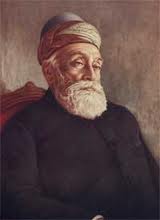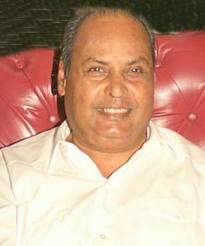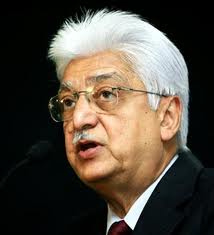|
| |
|
|
| Welcome to Readers' Club. A dedicated library for Book Lovers' with a vision of supporting and promoting Book Reading habit. Enjoy this library for FREE. Yes, for FREE. |
 Activate your membership for a year at just Rs.250 Activate your membership for a year at just Rs.250
 Choose from over 15,000 titles & increasing Choose from over 15,000 titles & increasing
 Books for all age-group in both English & Tamil Books for all age-group in both English & Tamil
 Order books at just a click Order books at just a click
 Get Delivery at your doorstep Get Delivery at your doorstep
 Just Reimburse us the nominal cost of delivery Just Reimburse us the nominal cost of delivery
 You pay delivery cost only when you use You pay delivery cost only when you use
 Save on Cost & Time to visit a Library Save on Cost & Time to visit a Library
 Save on your shelf space : Read & Return Save on your shelf space : Read & Return
Join Today. Gift your loved ones. |
|
|
|
|
| |
 Know Our Leaders - Jamsetji TataWhenever we think of the name Jamsetji Tata, we think of the expansive Tata Group of companies which continue to rule the industrial world of India till today. Jamsetji Tata founded the vast industrial empire that has received an identity today all over the world. Jamsetji Tata belonged to a trading family and business ran in his blood, therefore it was quite natural that he chose to be a businessman very early in his life. However, little did anybody know that Jamsetji Tata would be successful in redefining the concept of industries in India and would be listed in the pages of history as the "Father of Indian Industry"! Though Jamestji Tata started off working ever since he was 14, his real contribution came only after he had graduated in 1858. He became actively involved in his father's export business at a time when the business scenario in India was far from prosperous, largely because of the Sepoy Mutiny of 1857, which had been suppressed by the British Raj and had taken India by storm. Nevertheless, Nusserwanji Tata sent his son on a trip to Hong Kong in 1859 to expand his business interests there, a work that Jamsetji Tata completed successfully. Jamsetji Tata remained in Hong Kong for the next four years, trying to fulfill and realize his father's dream of setting up a branch of the Tata & Co. office there. The establishment of the new Tata & Co. office in Hong Kong was the beginning of the expansion of the Tata empire throughout Asia and the first step towards the creation of Tata & Sons. By the year 1863, there were Tata offices not only in Hong Kong, but also in Japan and China. Following the huge business success in Asia, Jamsetji Tata now traveled to Europe, but unlike in Asia, he faced with a drawback in the initial stages. Part of Jamsetji Tata's aims in visiting England, apart from increasing the number of contacts for his father's export business based in India, was to establish an Indian Bank in London. This project, however, proved highly unsuccessful for the Tatas because it was not a favorable time for the banking sector, with a financial crisis hitting the markets in several parts of India. The Tata companies in India and all over Asia faced huge monetary loss after the failure of the establishment of the Indian bank. Just like it is today, even in the pre-independent era, Jamsetji Tata made it a point to look after the best interests of the workers in Tata & Sons. The Tata companies were then also known to provide the best working atmosphere for its workers. Policies which were unheard of during those times, like medical facilities for the sick and for women with children, provision of pensions, accident compensations and on the job training, were a part of the companies owned by Jamsetji Tata. It was Jamsetji Tata who appealed to the Japanese Steam Navigation Company to reduce freight charges, a factor which was largely diminishing his profits. Though it was for the benefit for the entire nation, Jamsetji Tata made it a point to spend his own money to get the case solved when his demands led to huge upheavals in Japan. Eventually, Jamsetji Tata did emerge successful in reducing freight charges and thereby increasing profits for Indian traders. Business Legacy The cotton mills did satisfy his business acumen, but to remain stuck on the production of cloth was not the aim of Jamsetji Tata. His vision was to establish an iron and steel plant, a world class hotel, a learning institution and a hydro electric power project. Among his four wishes, only the second was fulfilled during Jamsetji Tata's lifetime when the Taj Mahal Hotel was established on December 3, 1903. In 1901, Jamsetji Tata traveled to Europe and America to educate himself on the making of steel. In addition, he made it a point to educate himself on the latest technological progress that had taken place over the years all around the world so that he may use it for the betterment of the industries under Tata & Sons. Sadly, Jamsetji Tata could not stay alive to realize his dream of establishing an iron and steel plant in India. Post Jamshetji Tata's death, The Tata Group was succeeded by his two sons, Dorabji Tata and Ratanji Tata. One of the most affluent, prosperous and well-to-do organizations, the Tata Group is today amongst the largest and most respected companies of the world. A pioneer of his field, the vision and aim of Jamsetji Tata came to life with time as his family gave wings to each of his dream projects. In fact, such was his contribution that the city of Jamshedpur in Jhakhand is today popularly known as Tatanagar, because of the many facilities that the group has endowed the city with. Today, the group boasts of being the founder of projects like Tata Steel, the Indian Institute of Science, the Tata Power Company Limited, the Taj Mahal Palace & Tower, the Tata Institute of Fundamental Research and many more.  Know Our Leaders - Dhirubhai AmbaniDhiru Bhai Ambani built India's largest private sector company. Created an equity cult in the Indian capital market. Reliance is the first Indian company to feature in Forbes 500 list.
Dhirubhai Ambani was the most enterprising Indian entrepreneur. His life journey is reminiscent of the rags to riches story. He is remembered as the one who rewrote Indian corporate history and built a truly global corporate group.
Dhirubhai Ambani alias Dhirajlal Hirachand Ambani was born on December 28, 1932, at Chorwad, Gujarat, into a Modh family. His father was a school teacher. Dhirubhai Ambani started his entrepreneurial career by selling "bhajias" to pilgrims in Mount Girnar over the weekends.
After doing his matriculation at the age of 16, Dhirubhai moved to Aden, Yemen. He worked there as a gas-station attendant, and as a clerk in an oil company. He returned to India in 1958 with Rs 50,000 and set up a textile trading company.
Assisted by his two sons, Mukesh and Anil, Dhiru Bhai Ambani built India's largest private sector company, Reliance India Limited, from a scratch. Over time his business has diversified into a core specialisation in petrochemicals with additional interests in telecommunications, information technology, energy, power, retail, textiles, infrastructure services, capital markets, and logistics.
Dhirubhai Ambani is credited with shaping India's equity culture, attracting millions of retail investors in a market till then dominated by financial institutions. Dhirubhai revolutionised capital markets. From nothing, he generated billions of rupees in wealth for those who put their trust in his companies. His efforts helped create an 'equity cult' in the Indian capital market. With innovative instruments like the convertible debenture, Reliance quickly became a favorite of the stock market in the 1980s.
In 1992, Reliance became the first Indian company to raise money in global markets, its high credit-taking in international markets limited only by India's sovereign rating. Reliance also became the first Indian company to feature in Forbes 500 list.
Dhirubhai Ambani was named the Indian Entrepreneur of the 20th Century by the Federation of Indian Chambers of Commerce and Industry (FICCI). A poll conducted by The Times of India in 2000 voted him "greatest creator of wealth in the century".  Know Our Leaders - Azim PremjiAzim Premji is Chairman of Wipro Technologies, one of the largest software companies in India. He is an icon among Indian businessmen and his success story is a source of inspiration to a number of budding entrepreneurs.
Born on July 24, 1945, Azim Hashim Premji was studying Electrical Engineering from Stanford University, USA when due to the sudden demise of his father, he was called upon to handle the family business. Azim Premji took over the reins of family business in 1966 at the age of 21.
At the first annual general meeting of the company attended by Azeem Premji, a shareholder doubted Premji's ability to handle business at such a young age and publicly advised him to sell his shareholding and give it to a more mature management. This spurred Azim Premji and made him all the more determined to make Wipro a success story. And the rest is history.
When Azim Premji occupied the hot seat, Wipro dealt in hydrogenated cooking fats and later diversified to bakery fats, ethnic ingredient based toiletries, hair care soaps, baby toiletries, lighting products and hydraulic cylinders. Thereafter Premji made a focused shift from soaps to software.
Under Azim Premji's leadership Wipro has metamorphosed from a Rs.70 million company in hydrogenated cooking fats to a pioneer in providing integrated business, technology and process solutions on a global delivery platform. Today, Wipro Technologies is the largest independent R&D service provider in the world.
Azim Premji has several achievements to his credit. In 2000, Asiaweek magazine, voted Premji among the 20 most powerful men in the world. Azim Premji was among the 50 richest people in the world from 2001 to 2003 listed by Forbes. In April 2004, Times Magazine, rated him among the 100 most influential people in the world by Time magazine. He is also the richest Indian for the past several years. In 2005,Government of India honored Azim Premji with Padma Bhushan. |
|
Birthday Wishes to
|
|
|
|
|
|
| Copyright © 2013 Readers' Club. All rights reserved. |
Site Powered By Readers' Club |
|
|
|